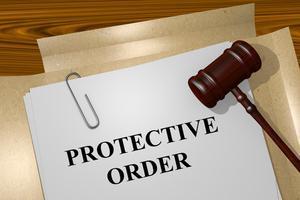 630-393-3111
630-393-3111
4200 Cantera Drive, Suite 200 | Warrenville, IL 60555
Am I the Victim of Domestic Violence in Illinois?
 Living with domestic violence can be confusing. Just when a bad temper or action actually crosses the line may not always be so easy to determine. In our state, the Illinois Domestic Violence Act gives you and your children the right to feel safe in your own home. That means beyond the reach of unwanted contact, physical violence, or even verbal harassment. The law spells out which acts are illegal to carry out in which types of relationships. And if it becomes necessary, it gives you the right to get an order of protection from a court to maintain that safety. So how do you know exactly where you stand?
Living with domestic violence can be confusing. Just when a bad temper or action actually crosses the line may not always be so easy to determine. In our state, the Illinois Domestic Violence Act gives you and your children the right to feel safe in your own home. That means beyond the reach of unwanted contact, physical violence, or even verbal harassment. The law spells out which acts are illegal to carry out in which types of relationships. And if it becomes necessary, it gives you the right to get an order of protection from a court to maintain that safety. So how do you know exactly where you stand?
“Domestic Violence” Means Certain Acts Against Certain People
“Domestic violence” is an actual crime where one member of a household or family abuses another. Among the acts of abuse are:
-
Physical abuse (pushing, hitting, strangling, forced sex, preventing you from leaving),
-
Harassment (disturbing you at work), repeatedly phoning you, following you, preventing you from seeing your child, threatening harm),
-
Forcing you to do things you don’t want to,
-
Making someone, including a child, watch abuse.
-
Preventing a disabled person from getting the care they need.
Members of a family or household include:
-
Family members by blood or marriage,
-
Spouses or former spouses,
-
Parents, children, or stepchildren,
-
People who share or shared a home,
-
People who date or used to date (regardless of gender),
-
People who allegedly have a child in common,
-
People with disabilities and their personal assistants.
Getting an Order of Protection
If you feel that you have been the victim of an act of domestic violence, and you fall into one of these relationship categories listed above, then you may want to consider getting an order of protection. An order of protection may prohibit them from continuing their threats or abuse, sharing your residence, coming near you and whoever else is protected by the order, taking or having custody over children, having weapons, and other acts. Even if you and the perpetrator are not both members of the same family or household, you may still qualify for a stalking or no-contact order. Our knowledgeable attorneys can help you determine which of these may be available to you.
Contact Our Naperville Order of Protection Attorneys
For immediate assistance obtaining an order of protection or stalking/no-contact order, get in touch with your compassionate DuPage County order of protection lawyers, Calabrese Associates, P.C., today. Our team has a long history of caring and attentive legal services and protection for families and children. Call 630-393-3111 for a confidential consultation.
Sources:
https://www.ilga.gov/legislation/ilcs/ilcs5.asp?ActID=2100&ChapterID=59
https://www.illinoisattorneygeneral.gov/consumers/brochures/DVBrochure.pdf


 4200 Cantera Drive, Suite 200, Warrenville, IL 60555
4200 Cantera Drive, Suite 200, Warrenville, IL 60555 630-393-3111
630-393-3111





